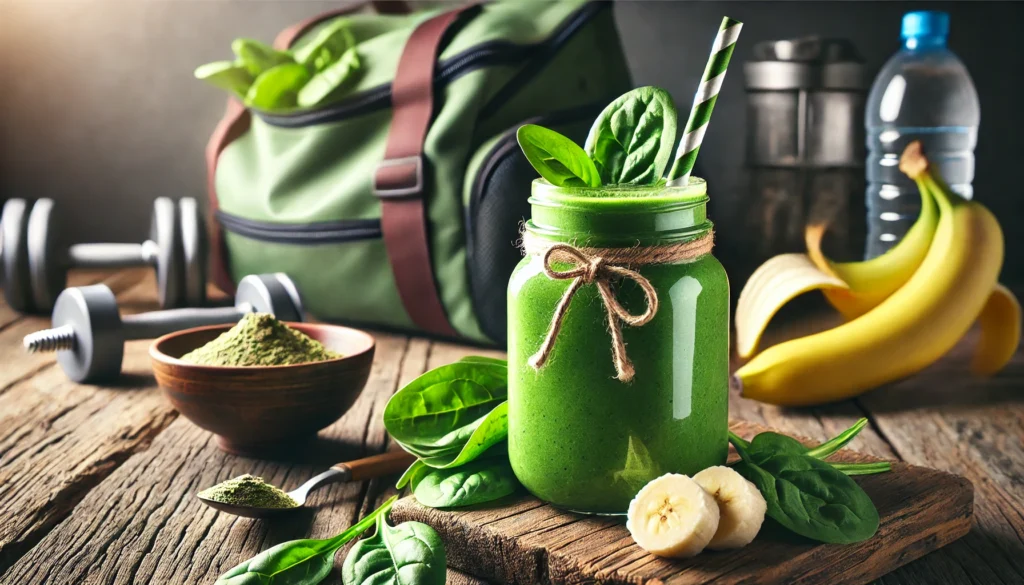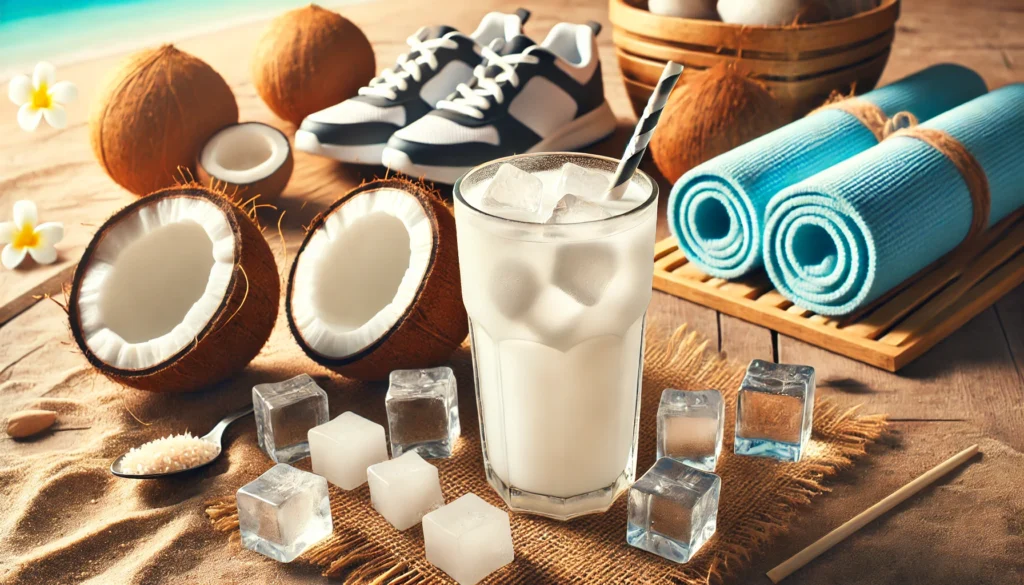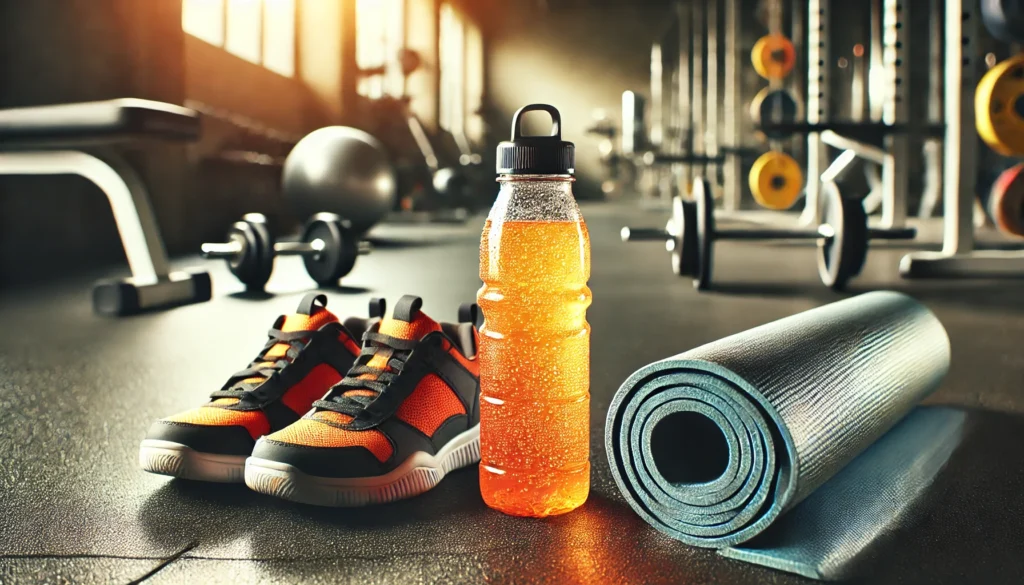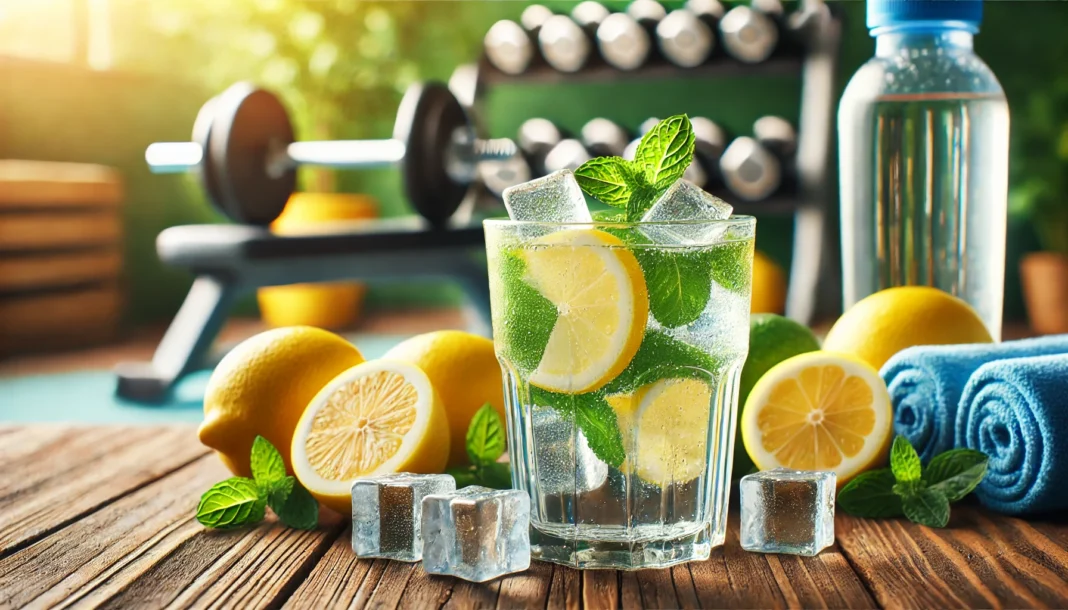The Importance of Pre-Workout Hydration and Nutrition
Preparing for a workout involves more than just stretching and mental readiness. One of the most crucial yet often overlooked aspects of athletic performance and recovery is proper hydration and nutrition. Understanding what to drink before workout sessions can significantly impact endurance, strength, and recovery, helping athletes maximize their performance and minimize post-exercise fatigue. Hydration and pre-workout nutrition not only fuel the body but also optimize muscle function, regulate body temperature, and enhance cognitive focus during physical exertion.
You may also like: Maximize Your Recovery: The Best Post Workout Supplement for Muscle Growth and Regeneration
Athletes and fitness enthusiasts must consider the physiological demands placed on the body during exercise. Dehydration or inadequate nutrient intake before exercise can lead to premature exhaustion, muscle cramps, and decreased overall performance. Whether engaging in endurance-based activities or strength training, selecting the right fluids before exercise is essential for sustaining energy levels and improving post-workout recovery. Understanding what to drink before a workout can make the difference between an effective, high-energy session and a lackluster, fatiguing experience.
The Role of Hydration in Athletic Performance
Proper hydration is foundational to athletic success. The body relies on water for various physiological functions, including regulating temperature, transporting nutrients, and maintaining joint lubrication. Dehydration, even at mild levels, can impair strength, speed, and cognitive function, leading to reduced performance outcomes. Studies indicate that a water loss of as little as 2% of body weight can cause significant declines in physical and mental capacity, making pre-exercise hydration a priority for athletes of all levels.
Before exercise, what to drink is determined by factors such as the duration and intensity of the workout, environmental conditions, and individual sweat rates. Consuming water, electrolyte-infused beverages, and natural hydrators such as coconut water can provide the necessary fluids and minerals to sustain performance. Athletes should begin hydrating well before their workout to ensure optimal fluid balance at the onset of physical activity. Sipping water consistently throughout the day rather than consuming large amounts right before exercise helps prevent gastrointestinal discomfort and ensures adequate hydration.
The Best Drinks for Pre-Workout Hydration
Choosing the right fluids before exercise is essential for maintaining endurance and preventing dehydration-related fatigue. While plain water remains the most effective hydration source for many, additional options offer enhanced benefits depending on individual needs and workout intensity.
1. Water: The Ultimate Hydration Essential
Water is the simplest and most effective choice for hydration before exercise. It supports metabolic function, enhances nutrient absorption, and prevents dehydration-related performance declines. The amount of water needed before a workout depends on factors such as body weight, sweat rate, and environmental conditions. As a general guideline, consuming 16 to 20 ounces of water at least two hours before exercise ensures the body is adequately hydrated.
2. Electrolyte-Enhanced Beverages
For those engaging in high-intensity or prolonged workouts, electrolyte-enhanced drinks can be beneficial. Electrolytes, including sodium, potassium, and magnesium, help regulate fluid balance, muscle contractions, and nerve function. Sweating leads to electrolyte loss, which, if not replenished, can result in muscle cramps and decreased exercise performance. Pre-workout electrolyte beverages help maintain optimal hydration levels and enhance endurance.
3. Coconut Water: A Natural Hydration Boost
Coconut water is a natural alternative to sports drinks, offering essential electrolytes such as potassium and magnesium without added sugars or artificial ingredients. This refreshing beverage provides a mild energy boost while supporting hydration, making it a popular choice for athletes who prefer natural hydration sources. Consuming coconut water before exercise can help maintain electrolyte balance and prevent early fatigue.
The Impact of Pre-Workout Nutrition on Performance
In addition to hydration, consuming the right nutrients before a workout is essential for maximizing performance and accelerating recovery. Carbohydrates, proteins, and healthy fats each play a role in fueling the body and preparing muscles for exertion.
1. Carbohydrates: The Primary Energy Source
Carbohydrates serve as the body’s primary energy source during exercise. Consuming a balanced meal or snack with complex carbohydrates before a workout ensures sustained energy levels. Examples include whole grains, fruits, and yogurt, which provide glucose to fuel muscles and delay fatigue.
2. Protein: Supporting Muscle Function
Protein intake before a workout supports muscle repair and growth. Sources such as Greek yogurt, eggs, or protein shakes supply essential amino acids that enhance strength and endurance. Combining protein with carbohydrates optimizes muscle recovery and minimizes post-exercise soreness.
3. Healthy Fats: Sustained Energy Release
Healthy fats provide a slow-burning energy source, ideal for endurance workouts. Nuts, avocados, and nut butter contribute to sustained performance by providing essential fatty acids that support metabolic function. Consuming a small portion of healthy fats before exercise ensures long-lasting energy without causing digestive discomfort.

The Best Pre-Workout Drinks for Different Fitness Goals
Depending on the type of workout and fitness objectives, the ideal pre-exercise beverage may vary. Matching hydration choices to specific training goals enhances performance outcomes and recovery efficiency.
1. For Strength Training: Protein and Electrolyte Beverages
Strength training demands adequate protein and electrolyte balance. A pre-workout protein shake combined with electrolyte-rich fluids supports muscle function and prevents dehydration-related fatigue.
2. For Endurance Workouts: Carbohydrate-Based Drinks
Endurance activities such as running or cycling require sustained energy. Consuming carbohydrate-based drinks, such as diluted fruit juice or sports drinks, provides quick glucose replenishment for prolonged performance.
3. For High-Intensity Workouts: Caffeine-Infused Hydration
Caffeine enhances focus and endurance during high-intensity workouts. Drinking coffee, green tea, or a low-sugar energy drink before exercise can improve stamina and cognitive function without excessive calories.
Frequently Asked Questions (FAQ) About What to Drink Before Workout
1. Why is it important to choose the right drink before a workout? Selecting the right drink before exercise significantly impacts hydration, energy levels, and overall performance. The body requires an optimal balance of fluids and nutrients to sustain endurance and support muscle function. Drinking the wrong beverage—or neglecting pre-workout hydration entirely—can lead to early fatigue, dehydration, and impaired cognitive function. Hydrating properly also aids in thermoregulation, helping to prevent overheating, especially in intense or prolonged workouts. Athletes should assess their hydration needs based on workout intensity, duration, and personal sweat rate to determine what to drink before workout sessions for maximum efficiency.
2. How does hydration before exercise affect post-workout recovery? Hydration before a workout sets the stage for effective post-exercise recovery. When the body is adequately hydrated before physical activity, muscle cells function more efficiently, reducing the risk of cramping and minimizing tissue damage. Additionally, proper fluid intake ensures that essential nutrients are delivered to muscle cells, accelerating the repair and growth process after training. Drinking fluids with electrolytes before a workout can also help maintain the body’s salt balance, reducing the likelihood of post-exercise dizziness or headaches. Understanding before exercise what to drink is essential for promoting overall athletic resilience and quicker recovery times.
3. Are there specific drinks that enhance endurance during prolonged exercise? Yes, endurance athletes benefit from drinks that provide both hydration and a steady source of energy. Carbohydrate-based beverages, such as diluted fruit juice or specialized endurance sports drinks, provide glucose for sustained performance. Electrolyte-infused drinks help maintain sodium and potassium levels, preventing muscle cramps and premature exhaustion. Coconut water is a natural alternative, offering hydration with essential minerals to support prolonged exertion. What to drink before workout sessions depends on exercise duration and intensity, but for endurance training, a combination of water, electrolytes, and carbohydrates is often recommended.
4. Can caffeine improve workout performance, and what are the best sources? Caffeine is a well-researched ergogenic aid that can enhance both mental focus and physical endurance. Consuming caffeine before exercise has been shown to improve reaction time, reduce perceived exertion, and increase fat oxidation, making it a popular choice among athletes. The best pre-workout caffeine sources include black coffee, green tea, and low-sugar energy drinks. However, individuals should experiment with caffeine timing and dosage, as excessive intake can lead to jitteriness or gastrointestinal discomfort. When considering what to drink before workout routines, caffeine can be a powerful addition if used in moderation and tailored to personal tolerance.

5. What role do electrolytes play in pre-workout hydration, and are they necessary for everyone? Electrolytes regulate nerve function, muscle contractions, and fluid balance in the body. While they are essential for hydration, their necessity varies depending on the individual’s workout intensity, climate, and sweat rate. Those engaging in high-intensity or prolonged exercise—especially in hot conditions—benefit from electrolyte drinks to replenish lost sodium, potassium, and magnesium. Conversely, for short or moderate workouts in cooler climates, plain water may suffice. Understanding before exercise what to drink based on sweat loss and exertion levels ensures that hydration remains balanced without overconsumption of unnecessary additives.
6. Are there any pre-workout drinks that can help reduce muscle soreness? Certain beverages consumed before a workout may help minimize muscle soreness post-exercise. Tart cherry juice, for example, contains antioxidants and anti-inflammatory compounds that aid in muscle recovery. Beverages rich in branched-chain amino acids (BCAAs) support muscle protein synthesis, reducing damage and soreness. Coconut water combined with a protein shake is another effective option, as it hydrates while providing essential amino acids. What to drink before workout sessions should be tailored to individual recovery needs, especially for those prone to post-exercise soreness and inflammation.
7. Should pre-workout hydration strategies differ for strength training versus endurance training? Yes, hydration strategies should be adapted based on workout type. Strength training demands protein-rich hydration options, such as a whey protein shake mixed with water or milk, to support muscle repair and growth. For endurance workouts, a carbohydrate-rich beverage, such as a diluted sports drink, ensures sustained energy release. Additionally, endurance athletes may require more electrolytes due to prolonged sweating. Knowing before exercise what to drink based on training style ensures that hydration and nutrient intake align with performance goals.
8. Is it beneficial to drink a protein shake before exercise, or is it better after? While protein shakes are traditionally consumed post-workout for muscle recovery, drinking one before exercise can also be advantageous. Pre-workout protein intake supplies amino acids that help reduce muscle breakdown during training. This is particularly beneficial for individuals engaging in resistance training or high-intensity workouts. A protein shake with a balance of carbohydrates can further enhance energy levels and improve muscle endurance. When considering what to drink before workout routines, those focused on muscle retention and strength may find a protein shake an excellent addition to their pre-training nutrition.
9. How does the timing of pre-workout hydration impact performance? The timing of hydration is just as important as the type of drink consumed. Drinking 16 to 20 ounces of water at least two hours before exercise ensures adequate hydration without causing bloating or discomfort. Closer to the workout, consuming smaller sips of a hydration-focused beverage helps maintain fluid balance. Over-hydrating immediately before exercise can lead to an uncomfortable, sloshing sensation in the stomach, negatively impacting performance. Understanding before exercise what to drink and when to drink it allows athletes to optimize their hydration strategy for peak performance.
10. Are there any drinks to avoid before working out? Certain drinks can hinder performance and should be avoided before exercise. Sugary sodas and artificial energy drinks can cause rapid spikes and crashes in blood sugar, leading to inconsistent energy levels. Alcohol and diuretics dehydrate the body, impairing coordination and endurance. High-fat dairy beverages may slow digestion and cause stomach discomfort during intense activity. Instead, what to drink before workout sessions should be selected based on hydration efficiency and nutrient delivery rather than taste or convenience. Avoiding these counterproductive beverages ensures sustained energy, improved focus, and optimal physical output.

Conclusion: Optimizing Hydration and Nutrition for Peak Performance
Understanding before exercise what to drink is crucial for maximizing workout performance and recovery. Proper hydration supports physiological functions, while strategic pre-workout nutrition ensures sustained energy and muscle endurance. Choosing the right fluids, from water to electrolyte-enhanced beverages and natural hydrators, helps athletes maintain peak performance. Additionally, integrating carbohydrates, proteins, and healthy fats into a pre-workout routine optimizes strength, stamina, and post-exercise recovery. By prioritizing hydration and nutrition, athletes can enhance their endurance, prevent fatigue, and achieve their fitness goals effectively.
pre-workout hydration, best drinks before exercise, workout performance nutrition, athletic recovery drinks, electrolyte drinks for workouts, coconut water benefits for athletes, protein drinks before exercise, carbohydrate intake before workouts, hydration for endurance sports, muscle recovery beverages, caffeine for workout performance, best pre-exercise hydration strategies, fitness hydration tips, sports nutrition drinks, natural pre-workout supplements, strength training hydration, energy-boosting drinks, hydration for high-intensity training, optimizing workout recovery, pre-workout meal and drink guide
Further Reading:
Fueling and Hydrating Before, During and After Exercise
When and What to Eat Before a Workout
Sports and Hydration for Athletes: Q&A with a Dietitian
Disclaimer
The information contained in this article is provided for general informational purposes only and is not intended to serve as medical, legal, or professional advice. While NewsHealthWatch strives to present accurate, up-to-date, and reliable content, no warranty or guarantee, expressed or implied, is made regarding the completeness, accuracy, or adequacy of the information provided. Readers are strongly advised to seek the guidance of a qualified healthcare provider or other relevant professionals before acting on any information contained in this article. NewsHealthWatch, its authors, editors, and contributors expressly disclaim any liability for any damages, losses, or consequences arising directly or indirectly from the use, interpretation, or reliance on any information presented herein. The views and opinions expressed in this article are those of the author(s) and do not necessarily reflect the official policies or positions of NewsHealthWatch.

